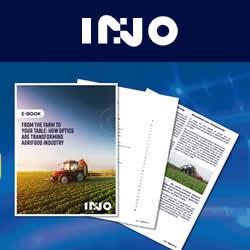Softrim™ Robotics-Based Cannabis De-Leafing System Launching at MJBizCon 2024
Industry-first innovation focused on higher yields, lower costs, and improved end-user satisfaction.
Softrim™ (www.softrimusa.com ) , the first-ever robotics-based cannabis de-leafing system - providing hand-trim quality at machine-trim volumes and rates - will be introduced at the MJBizConference 2024 in Las Vegas. The next-generation system is designed to provide cannabis growers higher yields, lower labor costs, and increased end-user satisfaction through an improved final product.
Platform Robotics, headquartered in Rochester Hills, Michigan, will formally introduce its patent-pending Softrim™ 2000 and Softrim™ 1000 cannabis cultivation systems (https://softrimusa.com/#Models ) during the event. The 2000 system caters to the outdoor segment; the 1000 system is targeted for the indoor segment. Both systems are capable of processing 1000 pounds of product per shift.
"Cannabis producers seeking high-volume, high-quality production cannot scale with hand-trim labor only, so they have relied on blade tumbler machines to attempt to achieve their goals," said John Baldiga, co-founder of Platform Robotics. "However, these machines shave off up to 35% of the flower bud, sending highly profitable flower into the trim containers."
"The Softrim system replaces bud shaving with a controlled gentle massage from robotically managed silicone fingers," he said. "The result is the similar quality and yield, or better, than hand-trim, at a rate of one pound of buds every 20 seconds. This technology, and the results it can provide, is a true breakthrough for the industry's volume cannabis growers."
Softrim's blade-free operation allows natural flower formations to remain intact during processing of the raw flower, maintaining desirable levels of THC and retaining the flower's appealing aroma, both critical to end-user satisfaction and thus grower sales.
The system is easy to learn and operate, reduces required labor, is extremely quiet, and is robustly designed to ensure reliable operation. Bucked flower is placed into the machine's incoming hopper. The raw flowers then drop vertically over the rotating silicone fingers, which break the dried brittle sugar leaves off the dense flower. Processed buds and waste are captured separately.
The speed and direction of the fingers are programmable, and the combination for each strain can be saved when switching between flower strain types. One Softrim machine replaces several noisy rotary blade cutters, and consumes minimal power.
"Softrim's performance is proven," said Baldiga. "As part of our pre-launch trials, we processed over 100,000 pounds of flower buds, including more than 100 strains of flowers. We typically averaged the same yield or better than hand trim depending on the strain, moisture level, and other potential factors."
"We believe post-harvest processing is a manufacturing engineering task," Baldiga said. "The trimming process has a direct correlation between grown flower yield and profit. Softrim is the answer, and it is game-changing technology."
MJBizCon attendees can view the Softrim 1000 and 2000 systems December 3-6 at Booth #3825. Members of the company's sales and technical support teams will be on sight to showcase the system and answer inquiries.
ABOUT
Softrim™ Blade-Free De-Leafing Technology is a patent-pending product of Platform Robotics, LLC, based in Rochester Hills, Michigan. Platform Robotics designs and builds robotic automation for the agriculture industry. Corporate leadership has over 50 years of industrial robotics experience, and has developed multiple industrial processes for many high-volume industries.
To contact Softrim, email 386693@email4pr.com, or call 1-248-600-4227, ext.104. To learn more about our technology and company, visit our website at www.softrimusa.com.
Featured Product

From the Farm to Your Table: How Optics Are Transforming Agrifood Industry
Agriculture is one of the pillars of our economy, providing jobs, revenue, raw materials and essential food products. However, the agricultural sector is facing many challenges, including the impact of climate change, the shortage of skilled labour and the need to produce more efficiently and sustainably. To tackle the problem, the agricultural world is undergoing a transformation thanks to new technologies and innovations based on optical technologies. In this 20-page e-book, we present how optical technologies are changing agrifood industry and the applications it now makes possible from the farm to your table.
